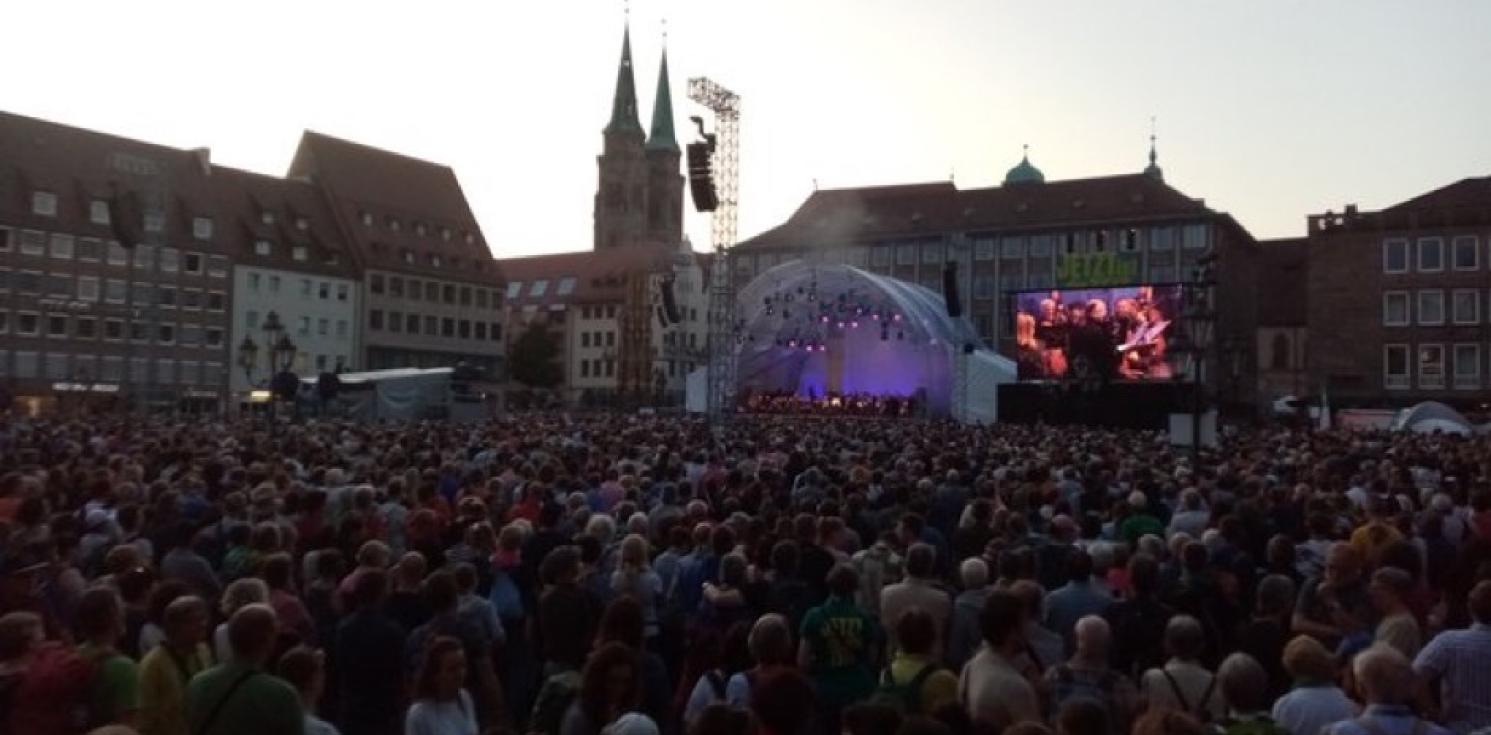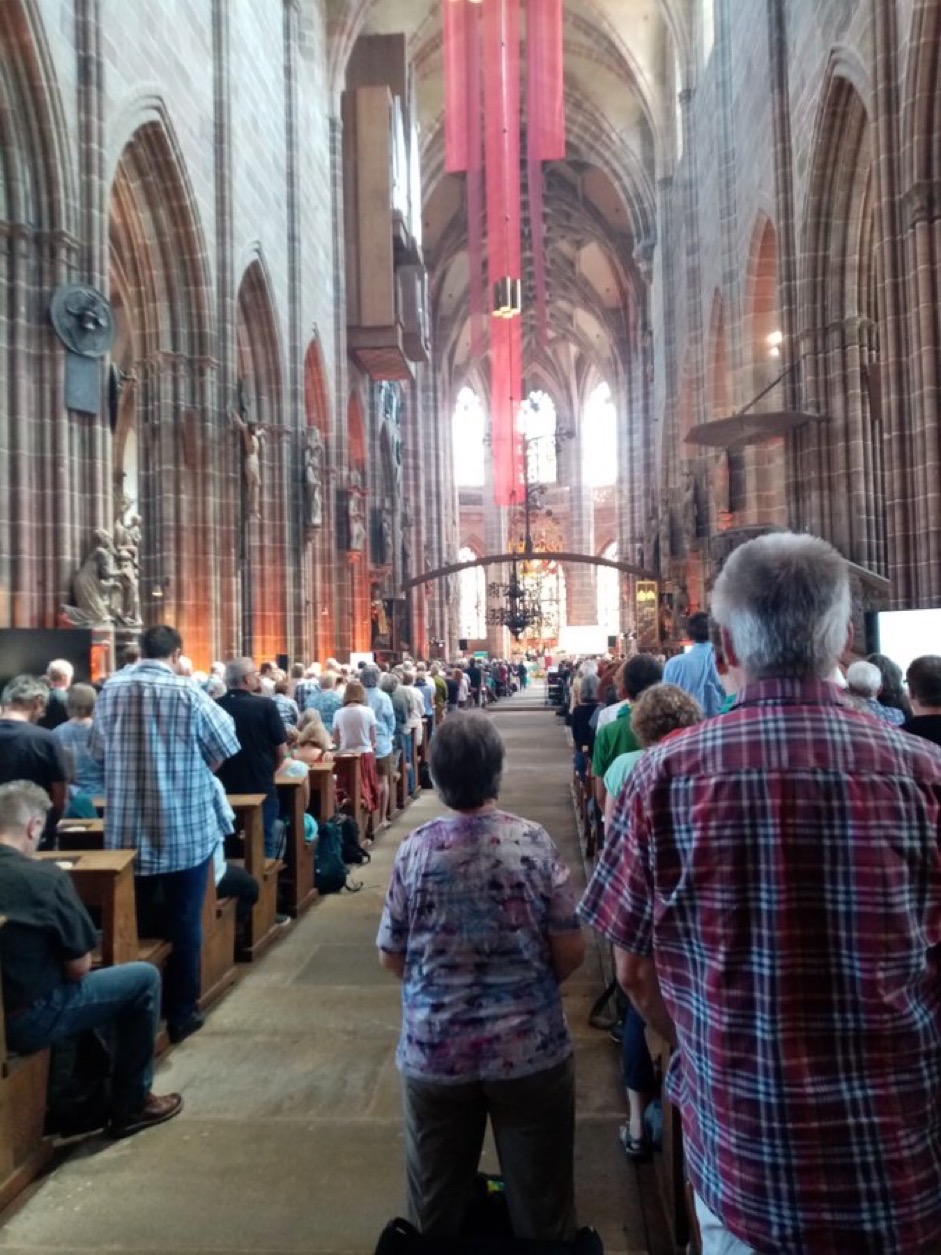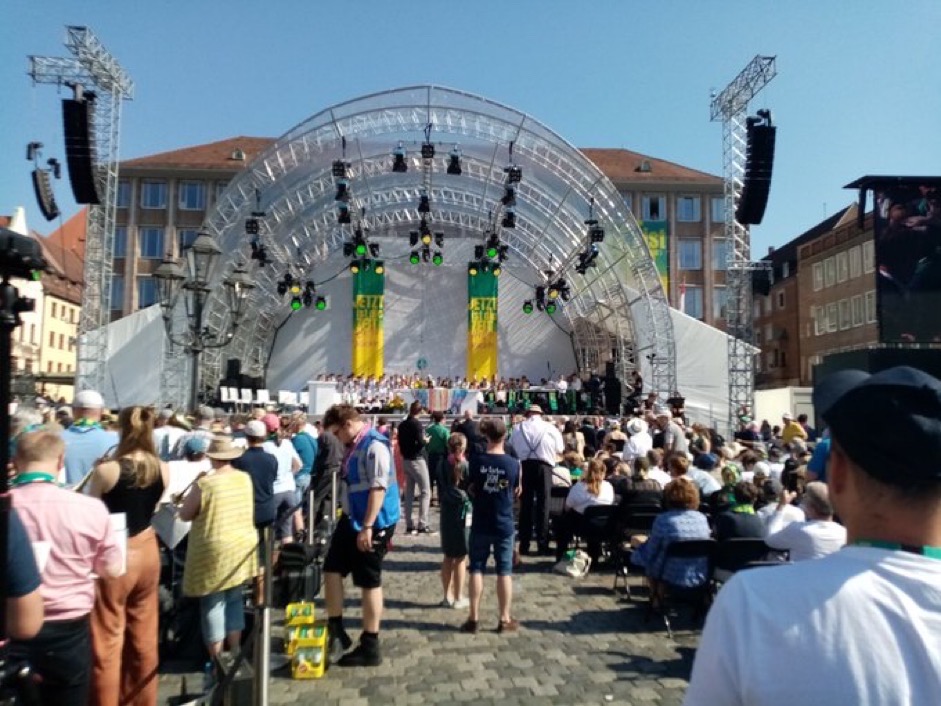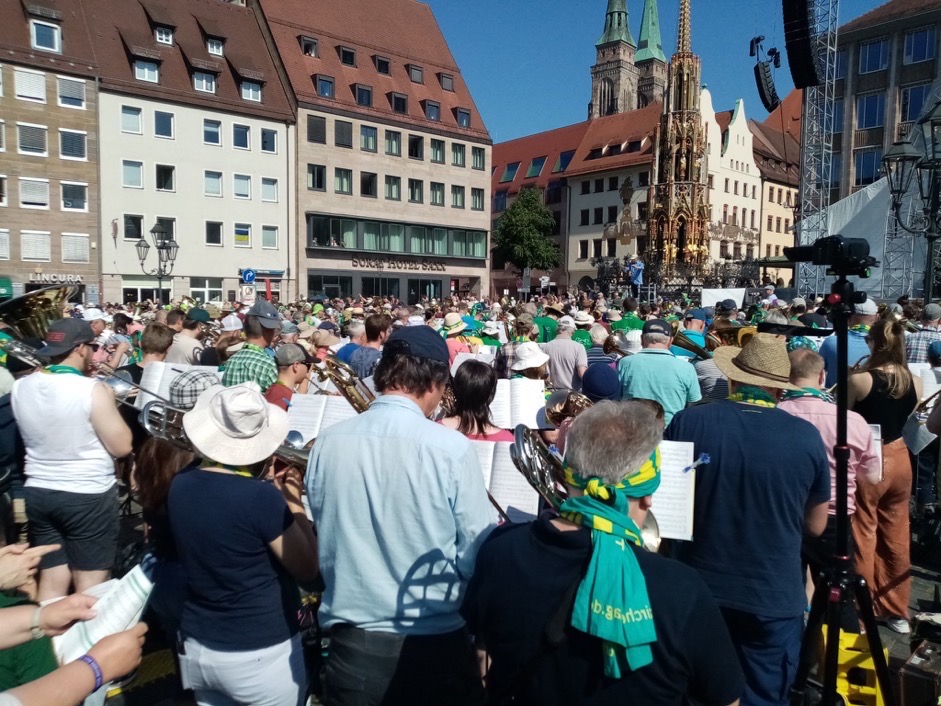Reflections from the Deutscher Evangelisher Kirchentag

Revd Canon Tony Dickinson, Chaplain of the Church of the Holy Ghost, Genova shares his reflections on the Deutcher Evangelisher Kirchentag, held in Nurnberg this year.
Rev Dickinson has been involved in the Kirchentag for nearly 40 years and was an active member of the Kirchentag's British Committee until he moved to Genova five years ago.
The Deutscher Evangelischer Kirchentag (DEK) has its origins in 1949 at the end of an Evangelical Week in Hannover (evangelisch in German means Protestant). It was begun by Reinhold von Thadden-Trieglaf as a lay movement and an "organisation in perpetuity", following the isolation of the church from the state during the Nazi era. The purpose was to "draw together Protestant Christians in Germany in order to strengthen them in their faith, to prepare them for responsibility in their churches; to encourage them in witnessing in the world; and to have solidarity with those in the world-wide community of Christendom."

Since 1954 it has been a biennial event; previously it took place every year. It has always had a bias towards the integration of theological, social and political themes, and has never shied away from sensitive issues. Nowadays the Kirchentag - literally "Church Congress" - commands the respect of international leaders in church and politics, and world-class speakers on every subject are found in the programme of events.
The format hardly changes, although recent Kirchentags have included an Ecumenical Village, reflecting the growing sense of unity and co-operation amongst the churches. The Kirchentag begins on a Wednesday evening in late May or early June in the "odd" years, and continues until the Sunday morning open air communion service. Within that time-frame there are around 3000 events to choose from - some serious, some cultural, some just fun - on a variety of topics under three or four main themes.
This year, Revd Canon Tony Dickinson, Chaplain of the Church of the Holy Ghost, Genova, attended and shares his reflections on the event:

It was always going to be tricky. The 38th Deutscher Evangelischer Kirchentag ended in Nürnberg on 11 June, four years after post-industrial Dortmund and two years on from the pandemic-stricken virtual event which was the 3rd Ecumenical Kirchentag – nominally in Frankfurt-am Main, actually “somewhere in cyberspace”. Before the opening services on 7th June, many were wondering how vigorously this great Christian gathering would bounce back from Covid-19. And how would the organisers, spiritual heirs of the anti-Nazi resistance, whose commitment to the peaceful resolution of conflict had underlain the Kirchentag movement from the beginning, respond to the way in which their plans for a Kirchentag focused on the climate crisis had been overtaken by events in Ukraine?
What did it mean to echo the words of Jesus at Mark 1:15 ‘The time is fulfilled, and the kingdom of God has come near; repent, and believe in the good news’? What, indeed, is the good news in a time of climate crisis and armed conflict on a scale not seen in Europe since 1945?

At a service in the city’s Lorenzkirche on the Friday of the Kirchentag a congregation of more than 800 people grappled with questions raised by the German Churches’ self-understanding as peace-makers, not only in relation to the conflict between Russia and Ukraine, but also in relation to the long-running conflicts in the Middle East and in the Great Lakes region of Africa. At around the same time, a crowd of nearly 5,000 gathered at one of the main open-air podiums to reflect on their participation in God’s mission and to seek an answer to the question: “What kind of peace do we want?”
But it was not all agonising and reassessing. There were celebrations, too. The Revd Dr Susan Durber of the United Reformed Church (and current European President of the World Council of Churches) and Bishop Heinrich Bedford-Strohm of the EKD in Bavaria had emphasised the potential of an “ecumenism of the heart” to an audience filling the Jakobikirche. “We Christians”, said Dr Durber, “are not colleagues. We are family.” It is important to make and maintain friendships with people of different traditions. It isn’t enough simply to learn about them. That lesson was reinforced later on the same Saturday evening when a mixed Anglo-German congregation gathered in the Paul-Gerhardt-Kirche to give thanks for the close connections between the Church of England and the Evangelische Kirche in Deutschland (EKD). Basing her sermon on the readings for St Barnabas’ day (11th June), Bishop Dagmar Winter of Huntingdon encouraged the congregation to “Be more Barnabas”, seeing the potential rather than the problems in situations of change and challenge.“


